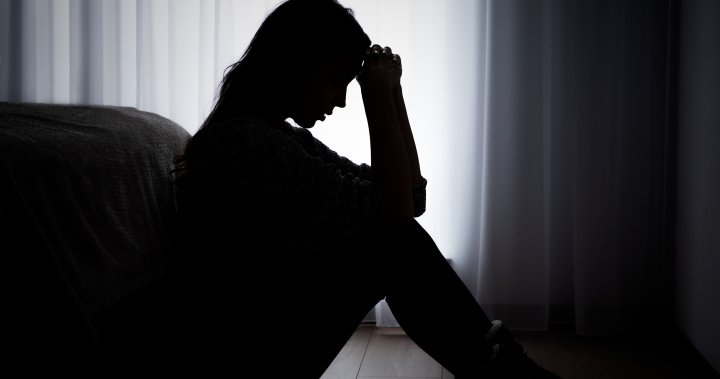
Menstrual cycles could help predict suicide risk, new research suggests
Global News
It's considered the first longitudinal study looking into how suicidal thoughts and related symptoms can fluctuate during a woman's menstrual cycle.
Editor’s Note: This story includes a discussion of suicide.
Women with a history of suicide risk have an increased likelihood of suicidal ideation or planning to end their lives in the days surrounding menstruation, a new peer-reviewed study by the University of Illinois Chicago found.
It’s considered the first longitudinal study looking into how suicidal thoughts and related symptoms can fluctuate during a woman’s menstrual cycle, finding some female patients are at their highest risk during this period of time.
“I would say our biggest key finding was that most symptoms do fluctuate across the menstrual cycle for people, but to varying degrees and at varying places,” UIC MD/PhD student and co-lead author Jordan Barone said in an interview with Global News.
Tory Eisenlohr-Moul, who is also a senior author of the paper, said that the study establishes the menstrual cycle can affect many people who have suicidal thoughts. But she also notes that it’s only one of the predictable recurring risk factors identified for determining when a suicide attempt may occur.
“As clinicians, we feel responsible for keeping our patients safe from a suicide attempt, but we often don’t have much more information about when we need to be most concerned about their safety,” said Eisenlohr-Moul, who is a UIC associate professor of psychiatry.
The study, published in the American Journal of Psychiatry Thursday, asked 119 patients to complete a daily survey to track suicidal thoughts and other mental health symptoms over at least one menstrual cycle.
According to a news release from UIC, this format allowed detailed data to be collected on changes in their mental health over the course of the cycle. It added previous research only worked to estimate timing of a person’s menstrual cycle status with a single time-point after a suicidal attempt.

 Run 3 Space | Play Space Running Game
Run 3 Space | Play Space Running Game
 Traffic Jam 3D | Online Racing Game
Traffic Jam 3D | Online Racing Game
 Duck Hunt | Play Old Classic Game
Duck Hunt | Play Old Classic Game

















